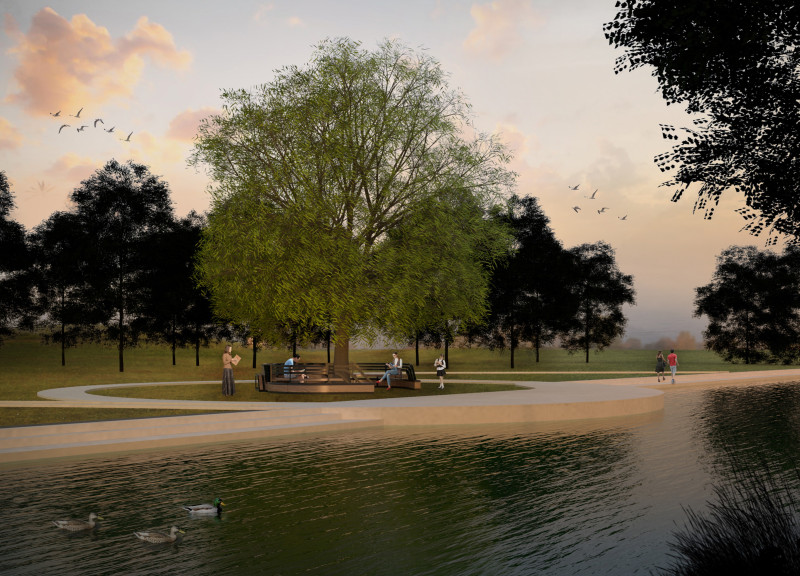5 key facts about this project
The "Tree Knowledge" project presents an engaging setting for reading and community interaction. It integrates a tree into its design, making nature a central element of the experience. This connection to the environment is intended to foster reflection and engagement with literature. The outdoor space encourages people to gather, creating a tranquil area for individuals and groups alike.
Modularity
Flexibility is a key feature of the design. The elements can be rearranged in different configurations, allowing for various setups in settings like parks and schools. This adaptability is beneficial for accommodating different group sizes and activities, whether for personal quiet time or larger gatherings. The design’s versatility enhances its usability across multiple contexts.
Sustainability
Sustainability plays a vital role in the project’s material selection. Composite lumber, made from waste wood, offers a strong yet low-maintenance option. This choice aims to reduce environmental impact while ensuring durability. Recycled foam is also utilized for its light weight and comfort, making assembly easier. Conifer cone board adds to the sustainable approach, as it is readily available and lightweight, reinforcing the commitment to ecological responsibility.
Functional Design Elements
Special features enhance the overall user experience in practical ways. Bike racks provide convenience for those arriving on bicycles, while weatherproof drawers offer protection for items in varying conditions. These thoughtful additions ensure that the reading area remains inviting and usable regardless of the weather.
People can gather under the protective shade of the tree, creating a space that blends nature with literature, encouraging meaningful interactions and fostering a strong sense of community.





















































